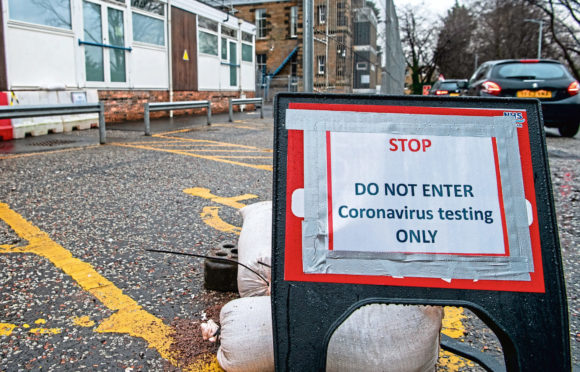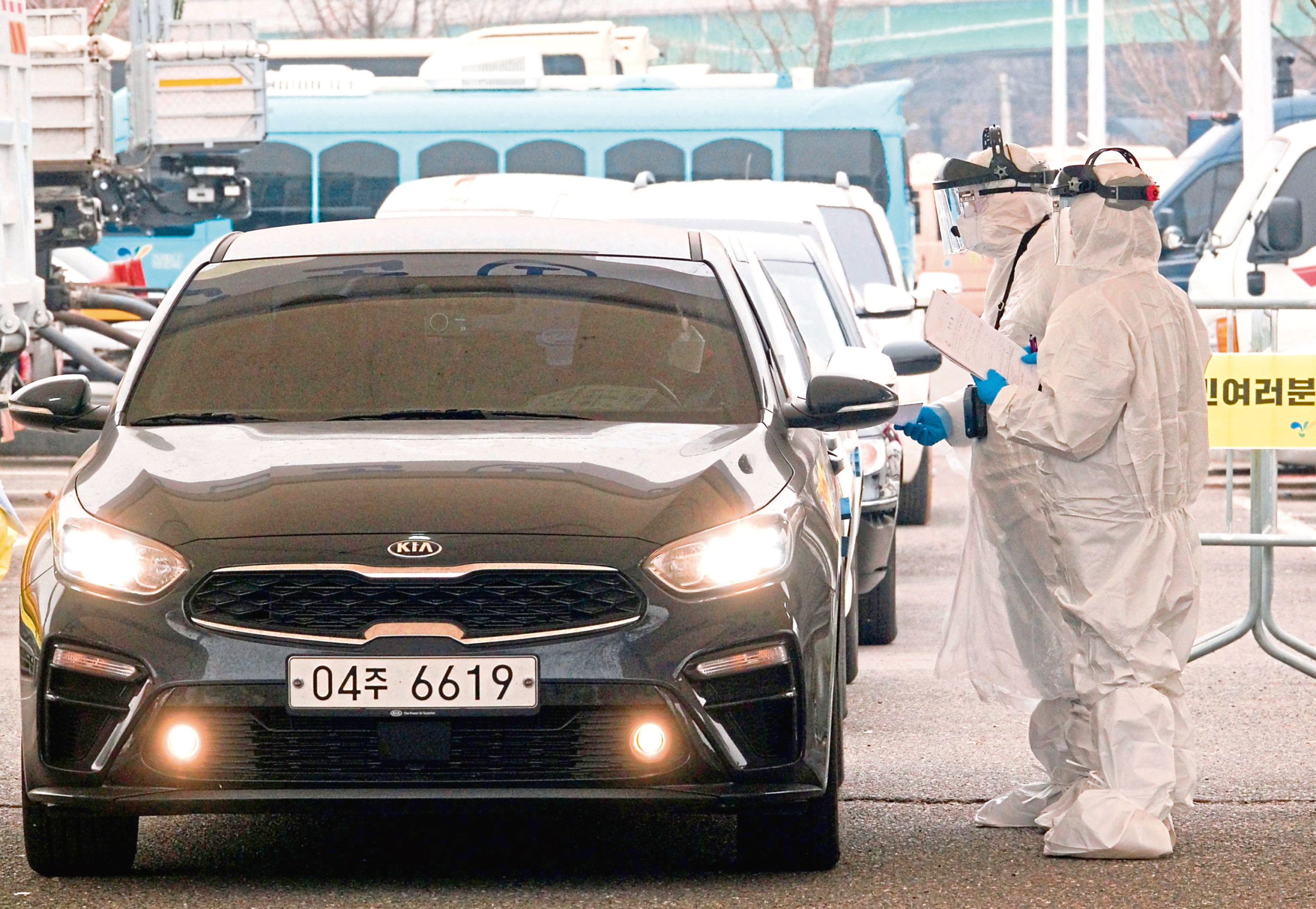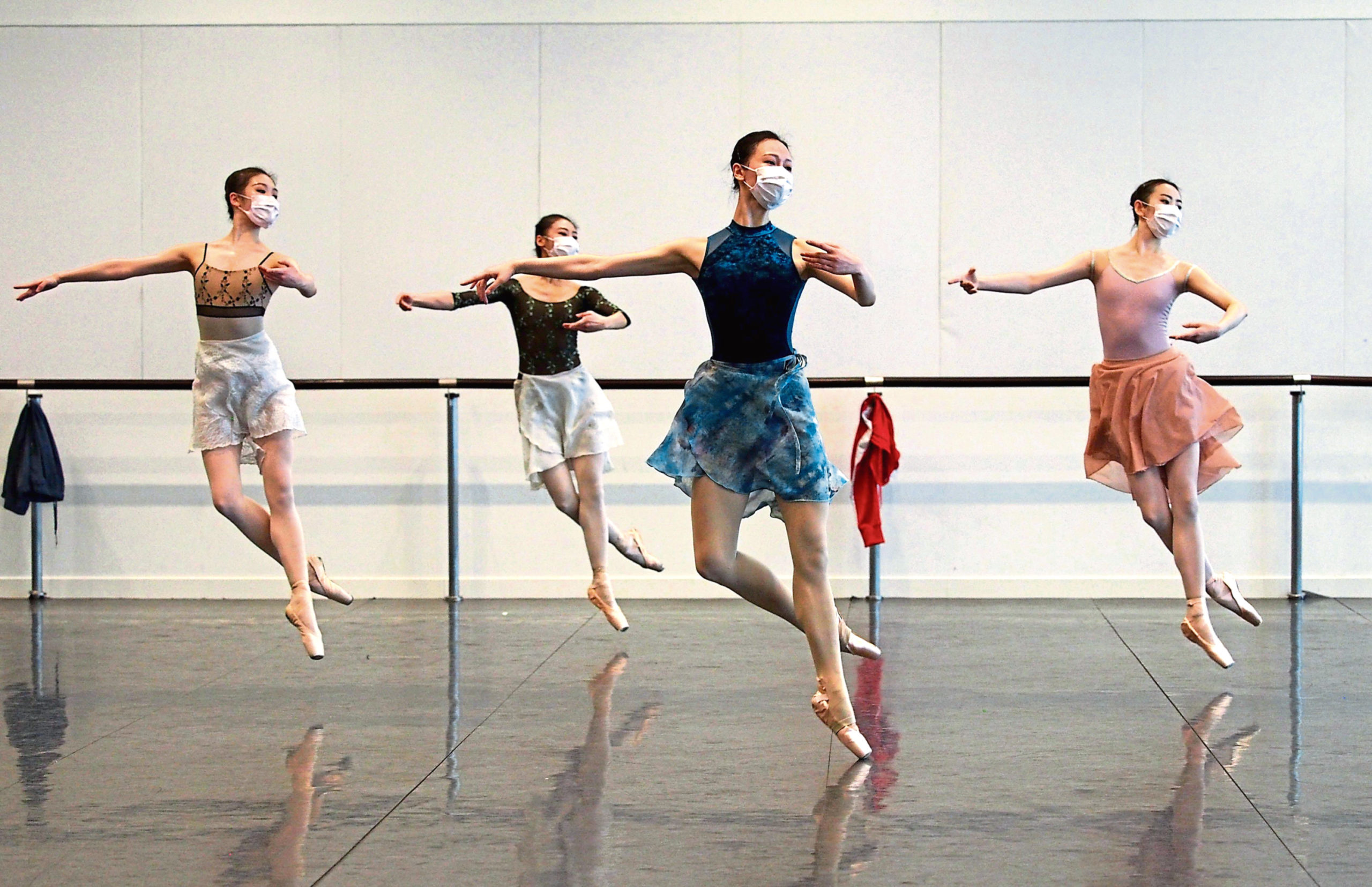
The number of Scots being tested for coronavirus climbed by more than 25% in a single day as leading experts in infectious diseases warn NHS Scotland risks being overwhelmed.
Official figures released yesterday revealed the number of people tested for the virus had risen by 130 to 630 as a screening programme for people with flu-like symptoms was unveiled.
There have been no confirmed cases so far but Scotland’s chief medical officer has said it is inevitable.
The country’s leading expert on infection control warned that if coronavirus “got really rolling” then scheduled operations would be threatened with a huge strain being placed on other NHS services.
Professor Hugh Pennington said an outbreak in Scotland would mean an urgent need for more testing facilities.
He added: “A bigger problem and a much more difficult one to cope with is how the health service would respond because a significant minority of patients with coronavirus would have a serious illness that would require intensive care.
“Most would survive if they’re treated with proper intensive care, but they’d be in hospital for two weeks with severe pneumonia and needing respiratory support.”
Professor Pennington, emeritus professor of bacteriology at Aberdeen University, added: “Intensive care units are stretched anyway. They don’t run on having a slack in the system by plan. They may have a slack because some patients have suddenly got better or died. But you can’t plan on that.
“It’s not economically effective to have 20% of your beds empty all the time. But, on the other hand, you do need that kind of slack for this kind of situation if it took off.
“People won’t stop having road traffic accidents or heart attacks or strokes. They will still require the treatment they’re having now.
“You can’t suddenly build an intensive care unit overnight. It would be very, very difficult. You’d have to put some of the non-infected patients somewhere else if it came to that.
“A lot will depend on the quality of the managers as well as getting the resources and the facilities and spending vast sums of money and giving up on waiting-list times and targets. They would go out the window. They would stop doing elective surgery.
“If the virus took off and started infecting the elderly, as one would reasonably predict it would, then hip replacements would stop for a while because you’d need the anaesthetists in intensive care.”
Prof Pennington said plans needed to be in place to ramp up the number of tests for coronavirus at short notice. He added: “It’s impossible to predict what’s going to happen. You have to have an element of judgment as to what sort of risk level you’ve got, how you’re going to respond to it and do you have the facilities to do it. Sometimes you have to do it in really short order.
“If we suddenly needed to roll out lots and lots of testing facilities and test samples, it’s technically feasible but administratively very difficult because you need trained staff. It is possible to do it but you have to have a plan.”
Scottish ministers are holding regular resilience meetings as the Scottish Government Resilience Room (SGoRR) has been activated. They will also be taking part in tomorrow’s UK Government COBRA meeting.
More than 10,000 people have now been screened in the UK, and 23 people have tested positive. Three new cases were announced in England yesterday.
People who have been to countries where cases have been confirmed are advised to self-isolate at home and phone their GP or NHS 24 on 111.
Health officials in Scotland have expanded the testing programme so a network of 41 GP practices will begin submitting samples from some patients with coughs, fevers and shortness of breath, even if they have not left Scotland.
Pneumonia patients in hospital critical care units will also be tested.
Scotland’s chief medical officer Dr Catherine Calderwood said: “Scotland is well prepared for a significant outbreak of coronavirus but there is currently no treatment or vaccine. Early detection measures will be vital in helping to prevent the spread of the virus in the event of an outbreak.
“Not everyone with flu will be tested, but this is a sensible step to take as a precautionary measure to give us an early warning of community transmission.”
Dr Calderwood has also said that providing extra laboratories across Scotland is the top priority as more people are being tested. She said: “Although all test results have come back negative so far, it is only a matter of time before there is a positive case in Scotland.
“Our priority is to ensure testing facilities are available across Scotland, so we have asked health boards to explore options for people in their area.”
Six health boards in Scotland are currently carrying out community testing, and another five have plans to expand into it.
Community testing involves people self-isolating and being visited at home to be swabbed by health workers in protective suits and masks. Drive-through tests are being done at hospitals by appointment by NHS Lothian and NHS Grampian, with drivers or passengers being tested in their cars before returning home.
NHS Shetland and NHS Ayrshire and Arran are just doing tests at contained healthcare facilities.
Infectious diseases expert Professor Jack Lambert of University College Dublin said: “I think in the next couple of days or couple of weeks we’ll see a case in Scotland. The more important part is: Are you well prepared?
“Your government should be asked what is your roadmap and what are you going to do when the first case comes? Who is going to be chasing those people down? Do you have the resources?
“These are the important messages rather than just standing up and saying it’s inevitable a case will come. It’s quite a scary virus.
“The most important question is what do you do when you get that case and then what do you do if that case spreads from one case to 300 cases like it did in northern Italy or one case to 2,000 cases like it did in South Korea.”
The Scottish Government said: “Scotland is prepared to deal with an outbreak of COVID-19. Scottish Government Resilience Room has been activated and ministers are chairing regular resilience meetings as well as taking part in the UK Government’s COBRA meetings.
“We continue to work with health boards, local authorities and other governments across the UK in ensuring that plans and preparations are in place to respond.
“Our advice for individuals who have been to affected areas has been clear and consistent from the start – they should self-isolate and call their GP or NHS 24 on 111.”
Health Minister Jeane Freeman held a briefing of party leaders and shadow health secretaries on Thursday with the chief medical officer.
Lib Dem health spokesman Alex Cole-Hamilton MSP, who attended, said: “Vigilance is the Scottish Government’s first strategy and there are then clear resilience protocols in place for all those who might come into contact, such as healthcare workers.”
“It is really important they know what to do and if people come from affected areas they are being told to self-isolate for two weeks.”
The half-hour briefing on Thursday was told only a “very low number” of Scots were at present self-isolating after returning from affected areas and that healthcare workers were being sent out to check them. It is believed only to include those who’d returned from Iran, Italy and Wuhan.
Mr Cole-Hamilton said: “It was a comprehensive briefing about what we know about the virus, Scottish resilience planning and what measures we’d take if there was an outbreak in Scotland.
“This is predominately around identification. If someone who’s been at an affected area presents at a healthcare facility, which they are recommended not to do, they go straight into quarantine.
“Anyone who tests positive would remain in their isolation location. Only those with pre-existing conditions would go to high-dependency units.”
Around the world
Europe
The continent’s worst-hit country, Italy, says confirmed cases have reached 888, mostly centred in the north. The death toll is 18. The number of infections in France has risen to 57 after 19 new cases were confirmed on Thursday. Germany has 57 cases while there are 32 cases in Spain located in areas including Madrid, Barcelona, Majorca and Tenerife. Russia reported two cases on January 31. Both patients – Chinese nationals – recovered and were discharged from hospital.
Asia
In mainland China, where the virus originated, 79,251 people are confirmed as having been infected, most in the central province of Hubei. The World Health Organisation says 2,744 people have died. Iran is one of the worst-hit countries with 43 confirmed fatalities as of yesterday. The total number of people diagnosed there with the virus has risen to 593. A third case was reported in India’s southern state of Kerala early last month. All three are students who returned from Wuhan.
Africa
Algeria, Egypt and Nigeria have each reported one case. The case in Algeria is a 61-year-old Italian national who arrived from his home country on February 17. In Egypt, reportedly a foreign national, is Africa’s first. The Nigerian case, confirmed on Friday, is the first in sub-Saharan Africa.
Americas
Health officials have confirmed the US’s first coronavirus fatality. Officials in Washington State say two new cases have been identified, including one patient who died. The US has confirmed 62 cases. Canada confirmed 14 cases by last week, the majority in Ontario and British Columbia. The Brazilian government says a 61-year-old national is Latin America’s first confirmed case. The man contracted the virus during a two-week work trip in Italy’s Lombardy.
Australia
Australia has confirmed 23 cases of the virus, including several passengers evacuated from the Diamond Princess cruise ship in Japan. New Zealand has confirmed its first case on Friday, saying a person who’d arrived from Iran – and who travelled to Auckland via Bali – had tested positive. Officials say the person, in their 60s, is being treated in Auckland City Hospital. The person is reportedly a female New Zealand citizen who arrived back in the country on Wednesday.

Enjoy the convenience of having The Sunday Post delivered as a digital ePaper straight to your smartphone, tablet or computer.
Subscribe for only £5.49 a month and enjoy all the benefits of the printed paper as a digital replica.
Subscribe © Aflo/REX/Shutterstock
© Aflo/REX/Shutterstock © Alamy
© Alamy